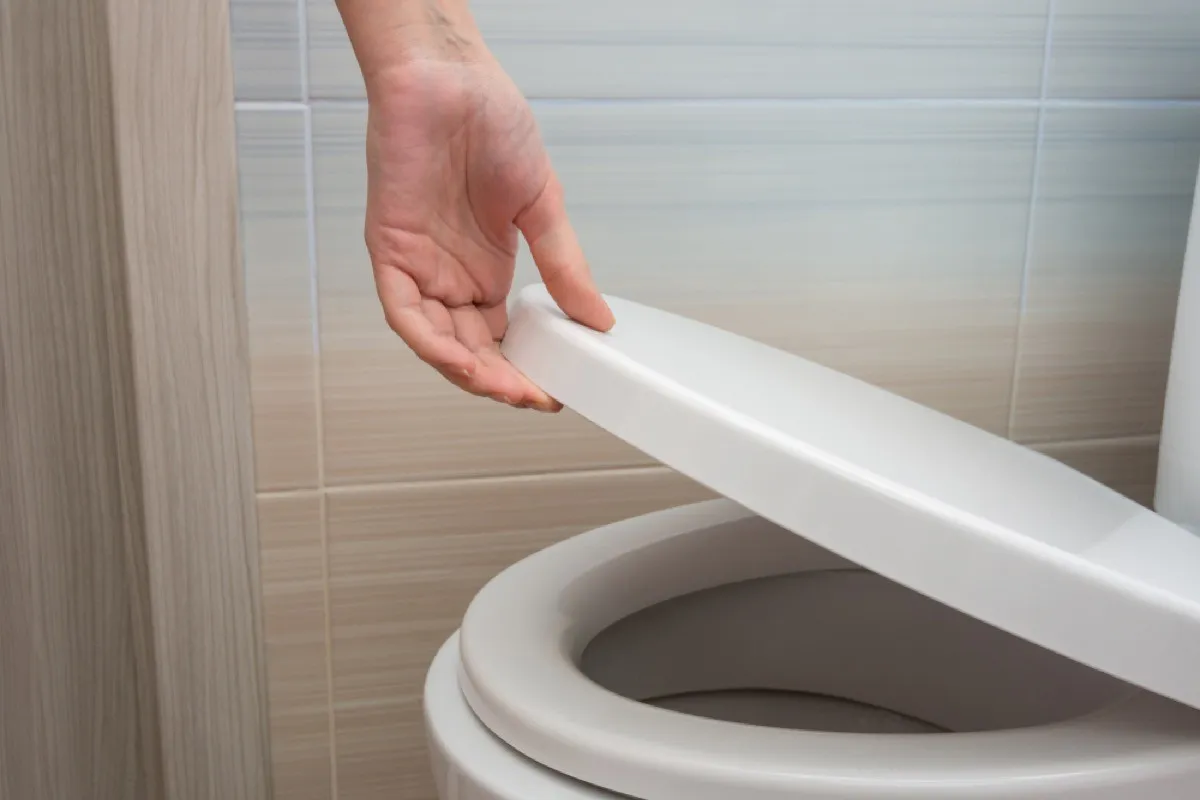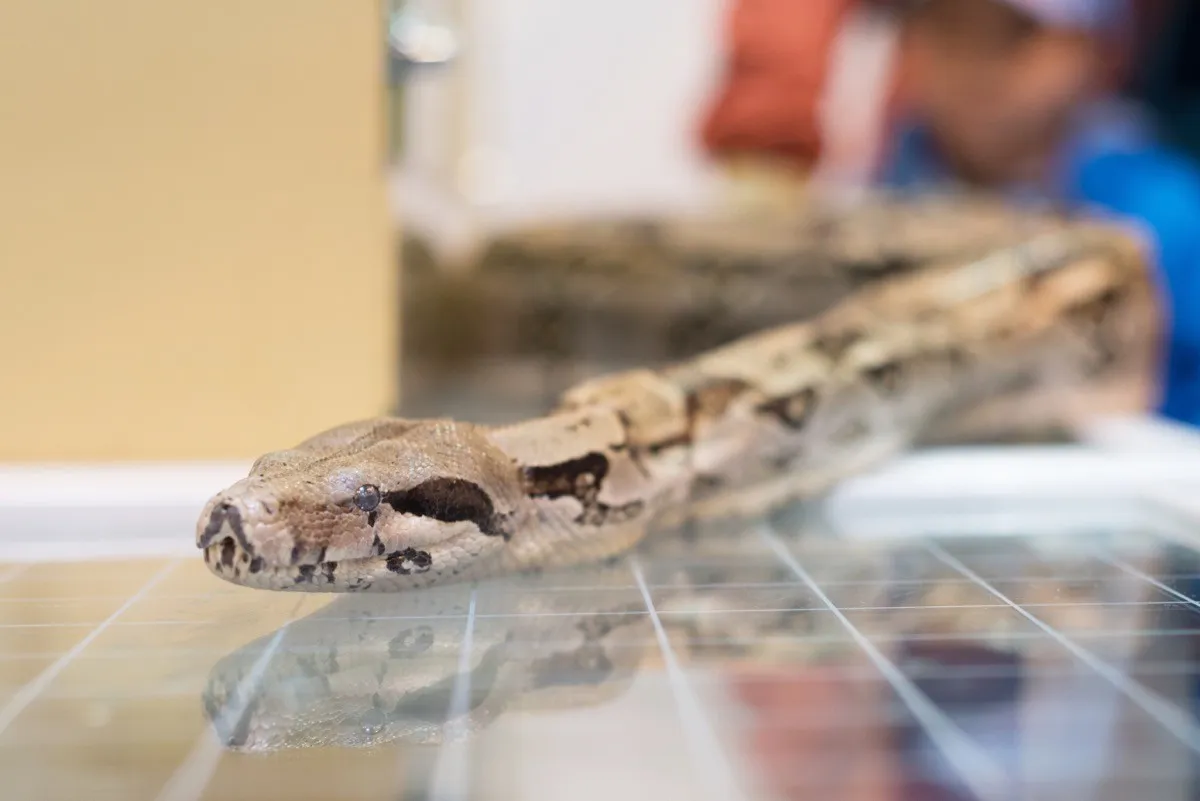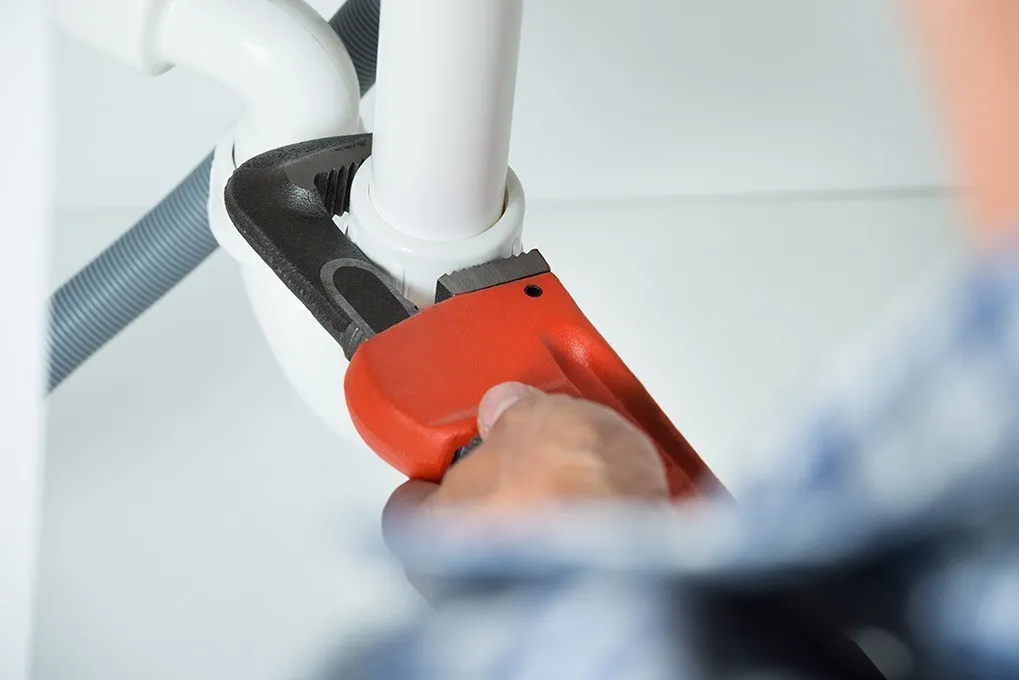The No. 1 Way to Keep Snakes From Getting in Through Your Toilet

Opening up the toilet lid to see a slithering reptile is the stuff nightmares are made of. Late last year, a Texas woman went to the bathroom in the middle of the night and was bitten by a snake on her leg when she sat down on the toilet. The year prior, an Arizona woman arrived home, lifted her toilet lid, and found a hissing snake staring back at her.
Although this type of incident is fairly uncommon, it does occur, and there are certain factors that increase its likelihood. To safeguard your bathroom plumbing from unwanted guests, we spoke to pest and reptile experts about the number one way to keep snakes from getting in through your toilet.
RELATED: If You Smell This at Home, You May Have a Venomous Snake, Experts Say.
Why do snakes even want to go in the toilet?

Before we get into keeping snakes out of the toilet, let’s understand why they go there in the first place.
“Snakes, along with all other reptiles, are ectothermic, which means they rely on the environment around them to control their body temperature,” says Georgina Ushi Phillips, DVM, advising veterinarian and writer for The Reptile Room.
“So, during a hot summer day, the open ventilation pipe or cracks in your home’s foundation make a great place to cool off,” she explains. “Eventually, these snakes can make their way into the toilet, and the sewer ventilation pipe (often on the roof) can often let them come up the toilet.”
RELATED: 4 Scents That Attract Snakes to Your Yard, Experts Say.
Start by keeping snakes away from your house altogether.

Oftentimes, snakes find their way into your toilet as a secondary place of hiding. Once they’ve entered the home, they’ll be looking for somewhere damp and dark to hole up. The experts we spoke with agreed that a main reason snakes come inside is that there’s an available food source.
“Homes with more small prey around them (like mice, birds, and bugs) can attract more snakes and increase the chances that they end up in your pipes, plumbing, and eventually your toilet,” says Phillips.
And regardless of whether you have a rodent problem, keep windows and doors shut, and ensure they don’t have any gaps or cracks.
And snake-proof your bathroom.

Outside of the toilet itself serving as a hiding place, your entire bathroom may be enticing. After all, there’s usually limited light, more moisture, and less foot traffic.
“Snakes are attracted to cluttered, messy environments. So, keep your bathroom clean and tidy to make it less appealing to snakes,” advises Jennifer Mecham, a snake expert and writer with Reptiles Blog.
Mecham also points out a fairly obvious tip—keep your toilet lid closed: “This may seem like a no-brainer, but it’s actually one of the most effective ways to prevent snakes from entering your home. When the toilet lid is closed, it creates a barrier that snakes can’t get through.”
RELATED: The First Place You Should Check for a Snake in Your Home, Experts Say.
Here’s the top way to safeguard against snakes in the toilet.

Experts say the top way to keep snakes from getting in through your toilet is to seal up their hidden entry points. The most conspicuous problem area is “cracks or crevices around your toilet,” says Mecham.
“Snakes can get into your home through the smallest of openings,” she notes. “So, it’s important to seal any cracks or gaps around your bathroom inside and out.”
A more intensive but important project is to fix and seal any broken sewer or water pipes. According to A.H. David of Pest Control Weekly, this is the most common way snakes get into toilets.
David also suggests installing electrical non-metallic tubing (ENT), a concrete-tight material, on the mouth of pipes to prevent any animal or reptile from getting in.
And if you believe a snake may have laid eggs in the pipes, Ray Mitchell from Mitchell Pest Services previously told Best Life that it’s recommended to pour a cup of bleach down the drain once a week.
Finally, you may want to consider that snakes are coming from above.
“Toilets (like other plumbing) are usually vented to the roof of a home,” explains Sholom Rosenbloom, the owner of Rosenbloom Pest Control. “If that is true where you live, I would suggest that you attach some sort of metal mesh screening over the opening of the vents because typically that’s where a snake might enter, being attracted to the scent of moisture in a dry climate.”
And, of course, if you believe you’re dealing with venomous snakes or if you don’t feel comfortable taking these precautions on your own, call in a professional.